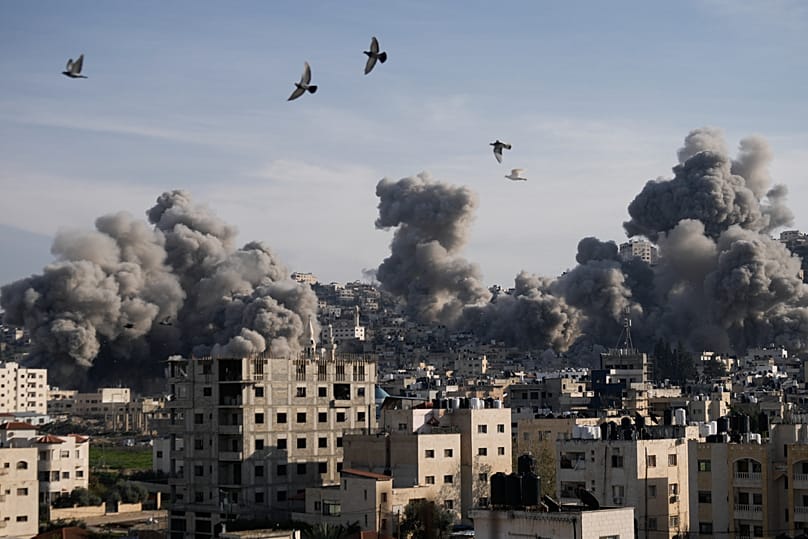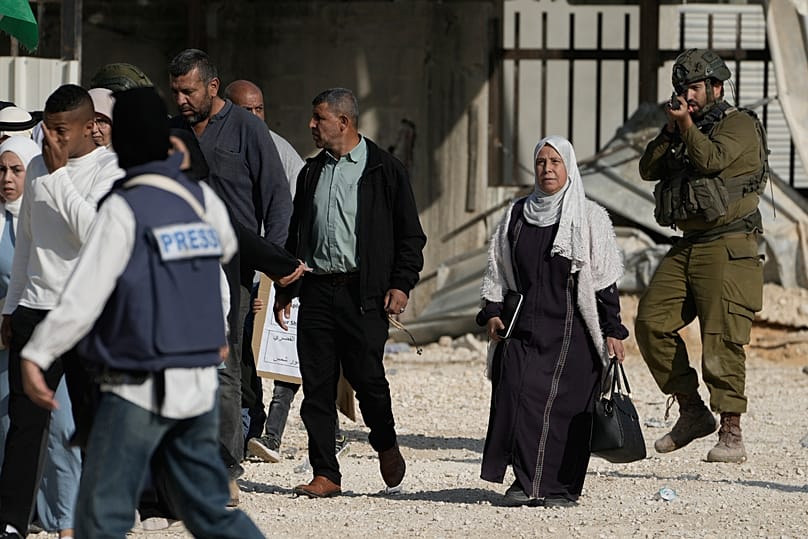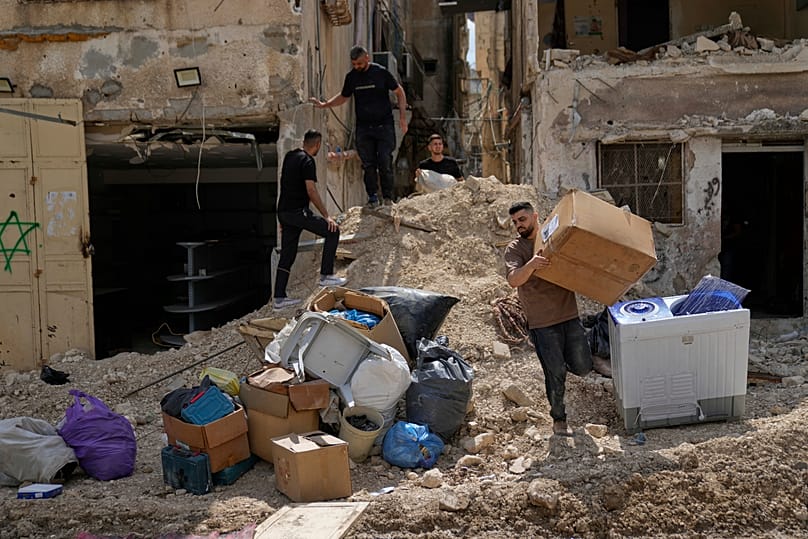A new report by Human Rights Watch finds that Israel committed war crimes in its ground offensive in the West Bank earlier this year, after tens of thousands of displaced Palestinians were denied return after hostilities ended.
Tens of thousands of Palestinians continue to be denied return to their homes in the occupied West Bank since Israeli forces conducted a military operation there early this year.
 ADVERTISEMENT
ADVERTISEMENT
 ADVERTISEMENT
ADVERTISEMENT
According to a report by Human Rights Watch, Israel is committing war crimes and crimes against humanity by refusing to allow Palestinians to return home since hostilities ceased.
In January, Israeli forces conducted vast military operations across several areas in the West Bank, including the Jenin, Tulkarem and Nur Shams refugee camps, where HRW conducted its research.
Dubbed "Operation Iron Wall", the Israeli government said it aimed to root out terrorist activity, going after Iran-backed militant groups, including Hamas and Islamic Jihad.
But even though hostilities have long since ceased, 32,000 Palestinians remain displaced, according to the HRW report, titled "All My Dreams Have Been Erased".
"International law is very clear on this. People, once displaced, should be returned once hostilities in the area have ceased. Hostilities in the area have long ceased," author of the report Nadia Hardman told Euronews.
"There is no reason to continue blocking off these camps to the displaced population."
Researchers conducted interviews and analysed aerial footage of the Jenin, Tulkarem and Nur Shams refugee camps to trace the extent of displacement and destruction.
Palestinians experienced 'humiliation and fear'
Under the Geneva Convention, forced displacement of a population can only be carried out when evacuation is required for imperative military reasons or to ensure the safety of the civilian population.
Civilians must also be provided with safe routes, access to food and water, and the ability to return once hostilities end.
The HRW report indicates that Israeli authorities failed to take steps to do so during the military operations in Jenin, Tulkarem and Nur Shams.
"All the residents who spoke to Human Rights Watch described the humiliation and fear of being forcibly removed from their homes, unable to gather their belongings and uncertain if or when they would be allowed to return," the report states.
The Israeli government indicated that Operation Iron Wall was necessary to eliminate "terrorist elements" in the refugee camps, and demolitions needed to "reshape" them.
HRW's analysis of satellite images showed that 850 buildings were demolished since the start of military operations. "The Israeli military did not explain why the displacement of the entire population of all three camps was necessary to achieve its aims, nor whether alternatives had been considered," it states.
"Half of these 850 buildings and homes actually were destroyed without a demolition order." Hardman said. "Some don't even know if their homes have been destroyed, because they didn't receive a demolition order."
A 'policy of ethnic cleansing'
Hardman says HRW asked Israeli authorities about the intent behind keeping the camps' population displaced. "Israeli authorities have just repeated their justification being one of military necessity to reshape the camps because of their security needs," she said.
"So they've not really engaged with the question of the right to return."
HRW says the presence of Palestinian fighters is not sufficient to justify a prolonged "wholescale civilian displacement", and "reflects the broader pattern of ongoing rights violations by Israeli authorities against the Palestinian population."
"This is a case of mass and systematic displacement. The scope is just so huge," Hardman said. "Our legal conclusions are that these are war crimes and they are widespread and systematic and they amount to a crime against humanity and ethnic cleansing."
HRW directs responsibility to three key figures it accuses of war crimes related to forced displacement: Israeli Prime Minister Benjamin Netanyahu, Defence Minister Israel Katz, and Abraham "Avi" Bluth, head of the central command that conducted Operation Iron Wall.
The report calls on governments to implement sanctions on these individuals and on the International Criminal Court to investigate them for crimes against humanity.
"The most important and most obvious and immediate is, for states to put pressure to end the forced placement of these Palestinian refugees," Hardman said.
She says Palestinians "want to go back to the lives that they were living before. And I think that desire to return cannot be extinguished."













